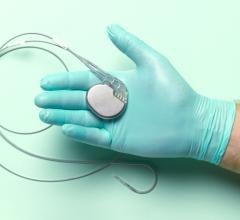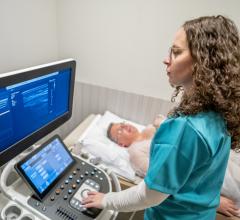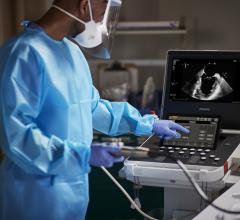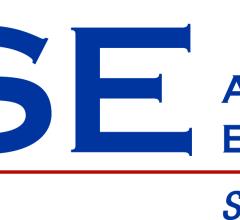
May 24, 2017 — Philips recently announced the results from a global study indicating that automated three-dimensional echocardiographic (3DE) analysis of left-heart chambers is an accurate alternative to conventional manual methodology. This multicenter study assessed Philips HeartModel A.I. Anatomically Intelligent Ultrasound (AIUS) software and builds on the conclusions of the previous clinical assessments carried out at individual locations by affirming consistency and reproducibility across multiple laboratories.
Published in European Heart Journal, the study aimed to determine the accuracy and reproducibility of three different heart measurements in a multicenter setting: left atrial (LA) volume, left ventricular (LV) volume and ejection fraction (EF). Researchers imaged 180 patients across six sites using 3DE with the Philips Epiq ultrasound system. All images were analyzed using automated Philips HeartModel A.I. software, which brings advanced quantification, automated 3-D views and robust reproducibility to cardiac ultrasound imaging.
"The days of time-consuming, difficult collection and analysis of heart measurements are behind us," said Roberto Lang, M.D., professor of medicine and director of noninvasive cardiac imaging laboratories, University of Chicago Medicine. "The results of this study provide further evidence that 3DE technology like Philips HeartModel A.I. is the way forward for global health systems to save time and gather accurate data for quality care delivery to patients."
Current medical guidelines recommend 3DE chamber quantification for patients undergoing an echocardiography exam, but adoption in clinical practice has lagged due to time-consuming analysis that has traditionally been associated with the process. By showing that experienced readers in different parts of the world can obtain accurate and reproducible automated measurements of LVEDV, LVESV and LVEF with clinically non-significant differences, this research demonstrates that HeartModel A.I.. is a time-saving option that yields consistent, reproducible results across laboratories.
These findings could contribute to fuller integration of 3DE quantification into clinical routine. Automated 3DE provides a comprehensive picture of heart function with real-time results, which can help clinicians assess and diagnose patients quickly and confidently.
Philips HeartModel A.I. is designed to allow clinicians and researchers to quickly, easily and confidently assess disease states and determine treatment. Anatomical Intelligence is used in Philips imaging solutions such as Epiq, Affiniti and EchoNavigator.
For more information: www.usa.philips.com/healthcare

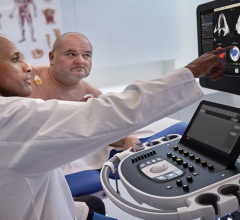
 June 12, 2024
June 12, 2024 

